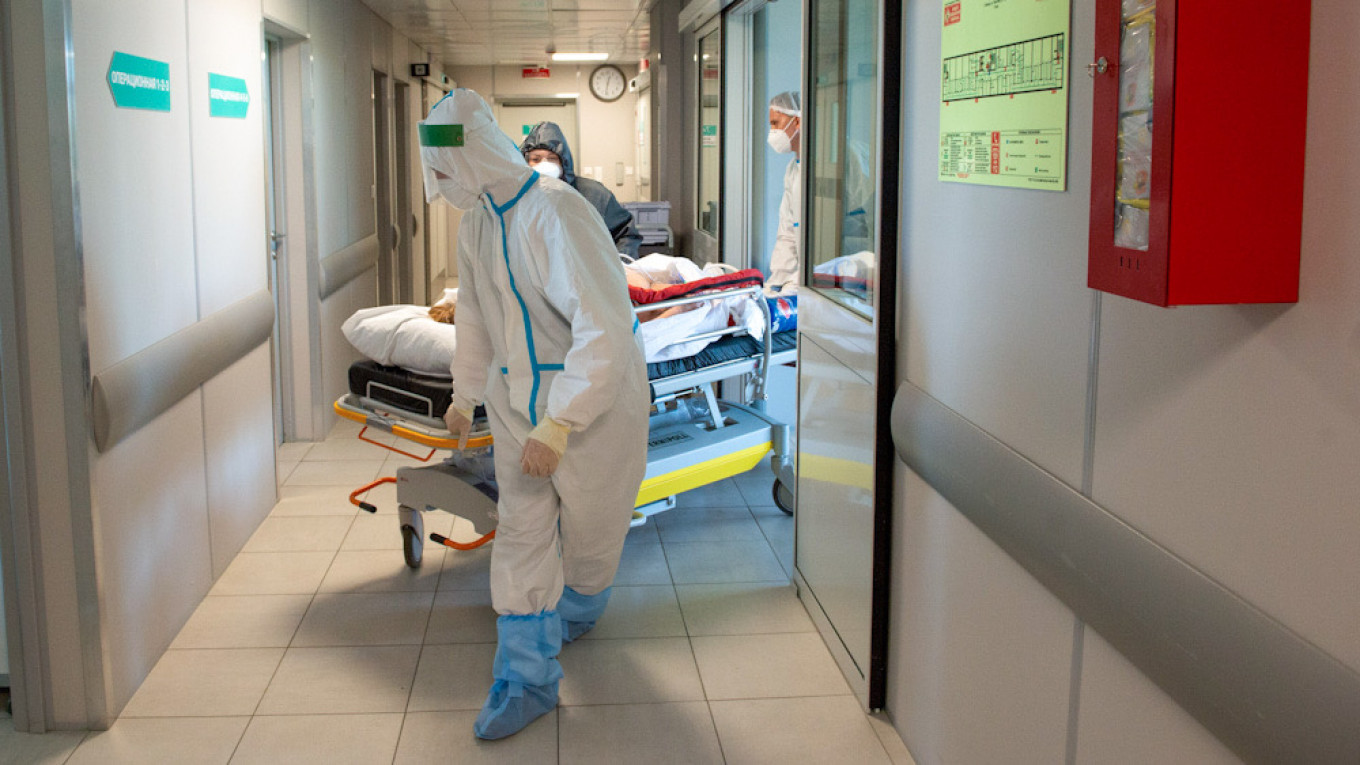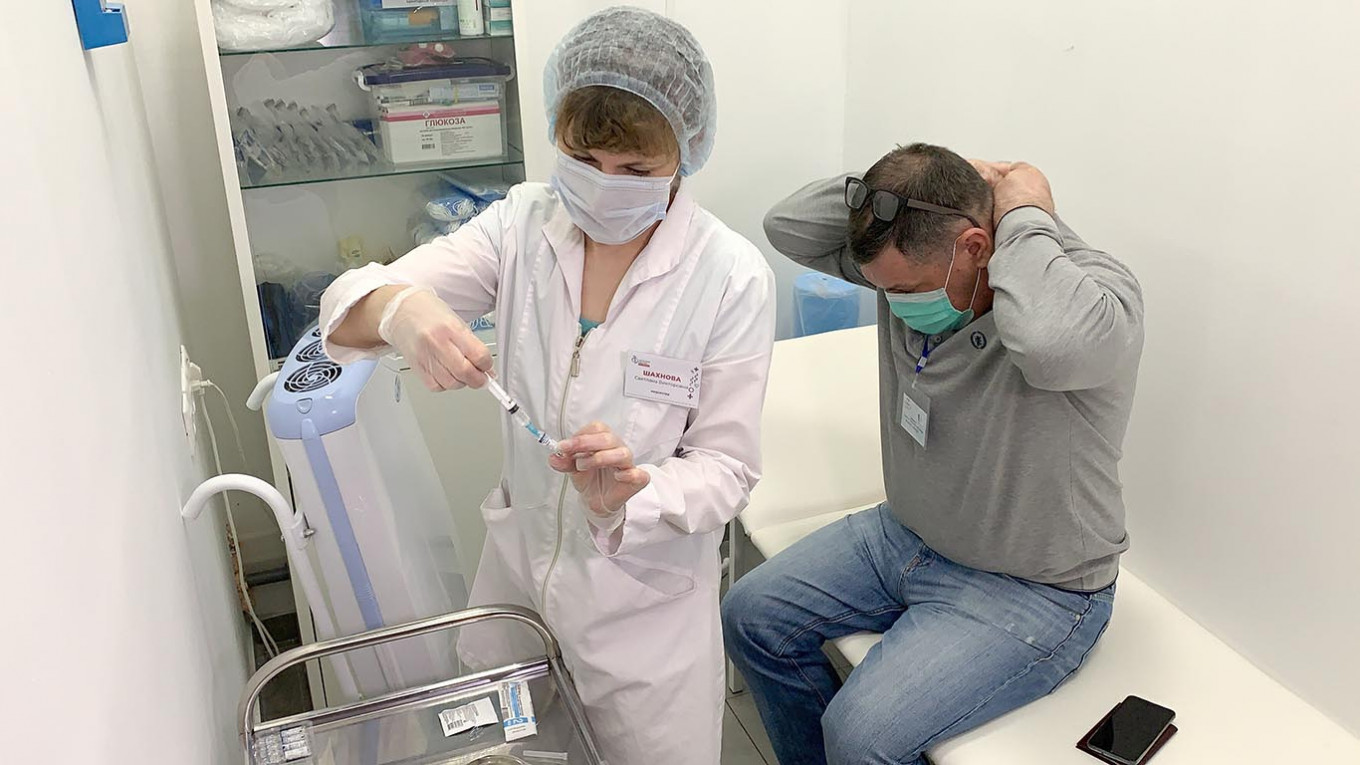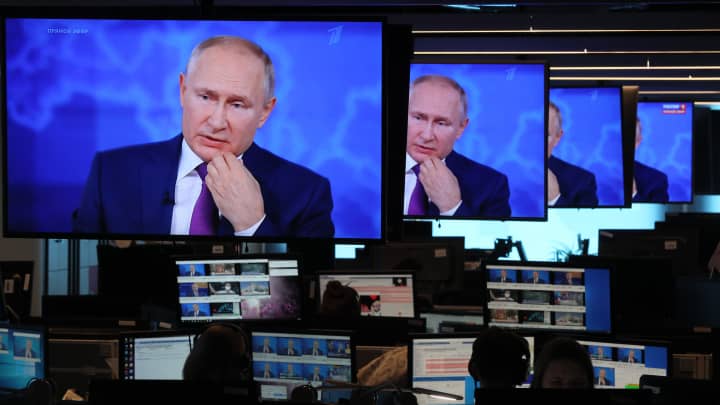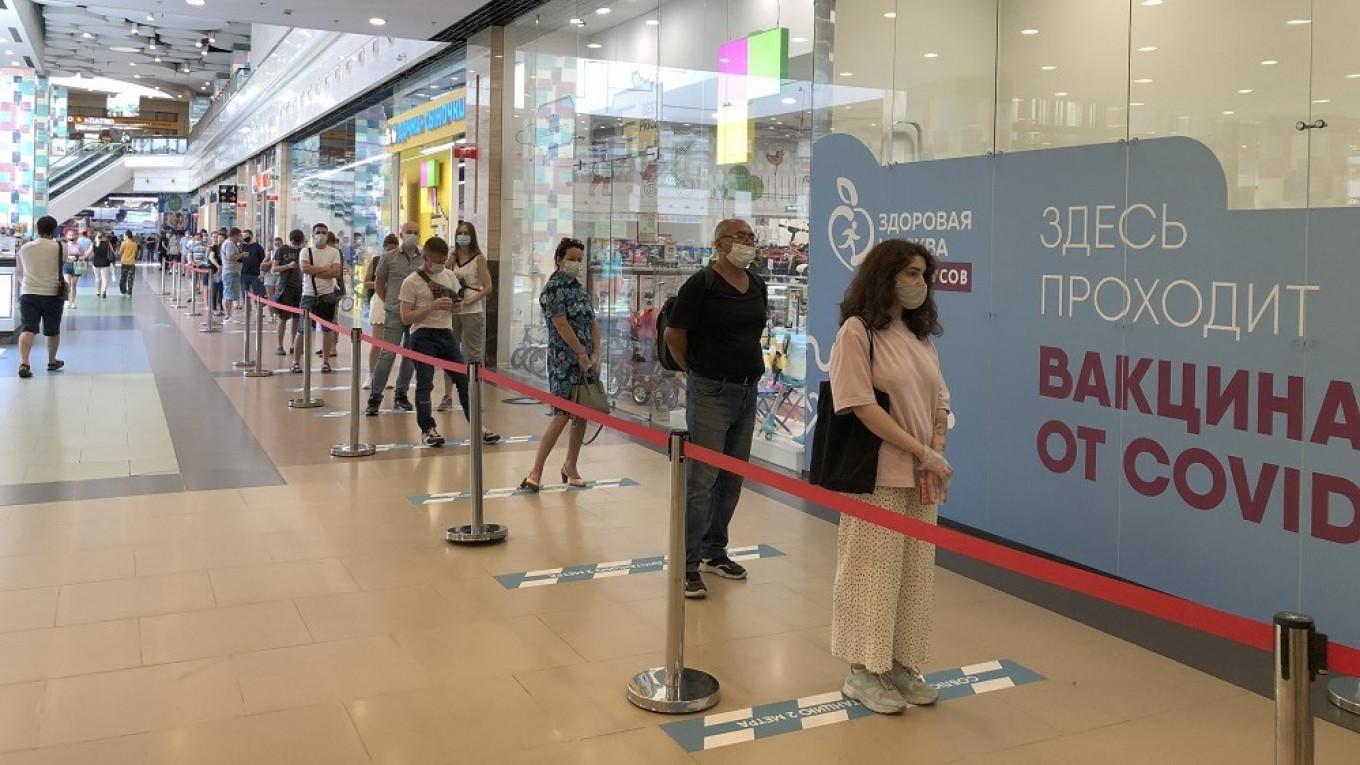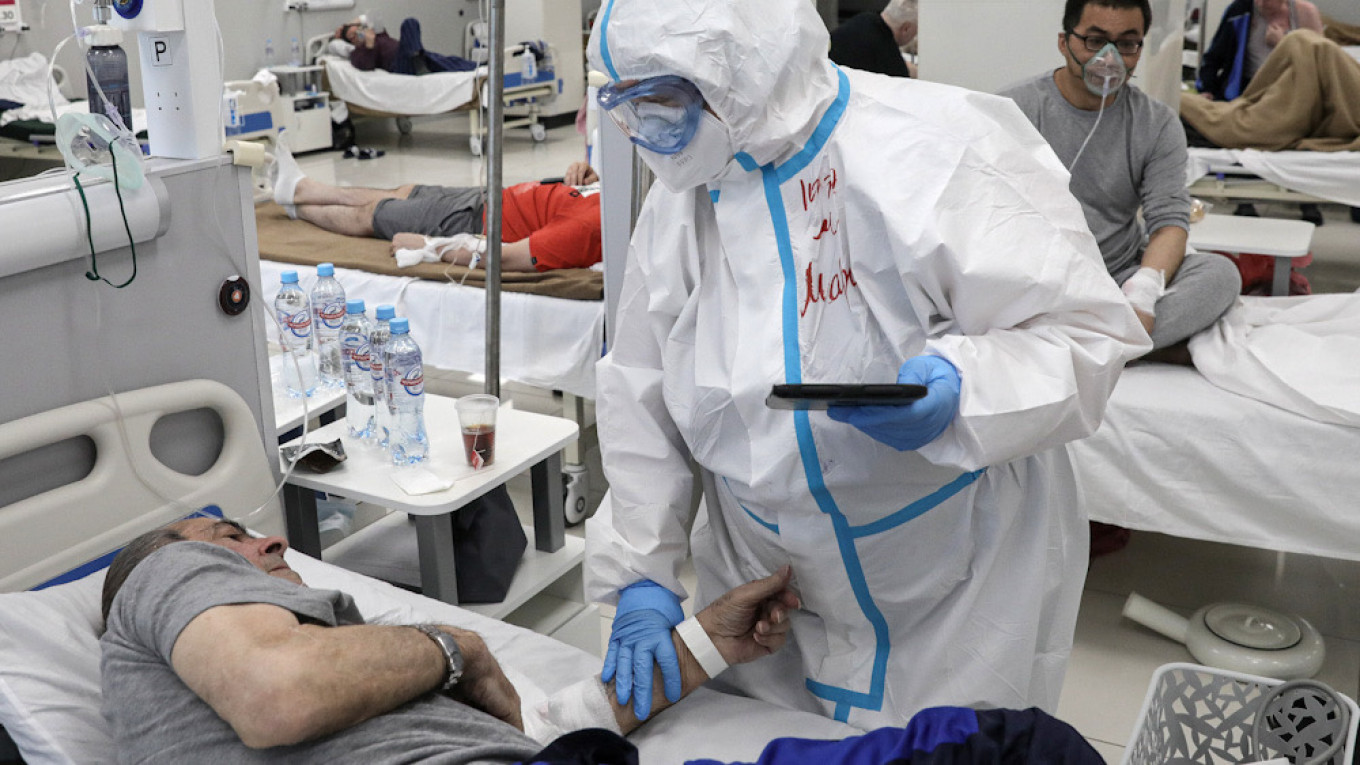MOSCOW—As I write this, Russia is firmly in the grip of the third wave of the COVID-19 pandemic. Every day, there are about 22,000 reported new infections—twice as many as during the peak of the first wave in May 2020—and more than 600 deaths. The new Delta variant of the virus, which Moscow Mayor Sergey Sobyanin says is responsible for 90 per cent of new infections in the Russian capital, has caught Russia almost completely unawares. Despite having access to the brain power and resources of one of the most technologically advanced nations in the world, Russian authorities have repeatedly squandered almost every chance to beat the pandemic. Their massive, bloated propaganda apparatus failed to do the one job it was designed for: Get the message out. Instead, the pandemic has exacerbated the crisis of trust between the Russian government and citizens. Now, the campaign for parliamentary elections in September could make fighting the pandemic even harder, since the ruling United Russia party may be even more reluctant to impose unpopular measures such as lockdowns.
Russian independent observers and journalists—including me and my colleagues at
Meduza—already knew something was terribly off with Russia’s handling of the pandemic in late spring of 2020. We had looked at the numbers and
recognized that COVID-19 deaths were being underreported in many regions of Russia. According to the official statistics at the time, tens of thousands of Russians were dying in 2020 of a mysterious pneumonia epidemic
unrelated to COVID-19. This was hardly plausible. The more likely explanation: Russian regional authorities were writing off the majority of COVID-19 cases as “community-acquired pneumonia.”
There is no evidence of a cover-up ordered from the top. More likely, regional governorates were simply being discreet to avoid being the bearer of bad news to the Kremlin. Underreporting COVID-19 cases in the early stages of the pandemic plausibly made many Russians question the existence of the virus or lulled them into a false sense of security, although there is no poll data to back this up. What’s certain is that by November 2020,
according to independent polling institute Levada, the majority of Russians did not trust their government’s COVID-19 figures: 33 percent thought them too low, while 28 percent believed they were exaggerated.
The next time I felt a sense of foreboding was in early December 2020, when I called my local clinic during the start of the Sputnik V vaccine rollout. At the time, only certain categories of frontline workers were eligible. However, vaccine uptake was so slow that the clinic told me it didn’t matter that I wasn’t prioritized—and asked if I could turn up right now. And so
I did, and became one of the first Russians vaccinated with Sputnik V. I was down with a flu-like fever and fatigue for a couple of days after each of the two required doses, but recovered without any complications. I am now protected against the virus with an impressive level of spike protein antibodies. I still maintain social distancing whenever possible, avoid large public gatherings, and wear a mask.
Astonishingly, six months later I am part of only a tiny minority of Russians who have chosen to be vaccinated—or managed to be, amid a chronic shortage of vaccine doses. Off to an early start with its own vaccine, Russia is now severely lagging behind. At the time of writing,
about 12 per cent are fully vaccinated, while another 4.7 percent have received a single dose—a much lower vaccination rate than China and Brazil, let alone most of the developed world. And Russians are
steadfast in their anti-vaccine convictions: According to a recent Morning Consult
poll, Russia now has one of the highest levels of vaccine skepticism in the world, with 35 percent saying they are unwilling to get vaccinated. Even the United States, where vaccine skepticism is rampant, has only 19 percent committed anti-vaxxers. Recently the Kremlin admitted that its original goal to vaccinate 60 percent of the population by September will be unachievable, according to a
report by TV Rain. Instead, the government has settled for a more realistic 30 percent.
In fact, the situation is so dire that some of Russia’s regions are already reintroducing lockdowns. In Moscow, city authorities have ordered compulsory vaccinations for certain categories of public servants and service industry workers and barred unvaccinated people from entering bars and restaurants. Not that Russians are easily cowed: There is now a booming
black market for
fake vaccination certificates. There are also reports of Russians paying bribes to have their vaccine dose discarded and be injected with saline solution instead.
None of this should come as a surprise. Instead of promoting safety measures and campaigning to get the public vaccinated, Russian state-owned media have spent an inordinate amount of time ridiculing other nations for their harsh lockdowns—which Russia never imposed—and trashing their vaccines. Not that Russians have much of a choice over which jab to get: Only the domestically produced Sputnik V, EpiVacCorona, and Covivac vaccines are
permitted for use in Russia. One of these, EpiVacCorona, has been
embroiled in a constant stream of
scandal and
skepticism about its efficacy and has been all but publicly accepted as a dud.
Television news programs and state news agencies, such as RIA Novosti, have gleefully amplified every complication and casualty from vaccines produced by BioNTech-Pfizer, Moderna, and AstraZeneca and gloated over every development hiccup. Unsurprisingly, vaccine skepticism is so rampant at these media outlets that the CEO of state news agency Rossiya Segodnya
sent out a company-wide memo pleading the employees to get vaccinated and avoid the fate of three of their colleagues who died in intensive care in Moscow during a single week.
Meanwhile, Russian foreign broadcaster RT has been feeding Western audiences with anti-vaxxer conspiracy theories, comparing lockdowns and other restrictions to the
Nazi occupation and
apartheid. That same twisted rhetoric is now spreading in Russia: On June 22, Egor Beroev, a prominent Russian TV and film actor,
spoke at an awards ceremony and gave an impassioned defense of unvaccinated Russians, who he claimed were being “segregated” from the rest of the society like the Jews under the Nazis. To drive the point home, Beroev wore a yellow six-pointed star. His speech was met with applause. Similar stars adorned the T-shirts of protesters
picketing the campaign headquarters of the ruling United Russia party in Moscow to protest against mandatory vaccinations.
Among Russians, the reasons for refusing to be vaccinated vary—some will mention that Sputnik V was rushed through development and approved before phase III trial data was available. Others will insist that they don’t need any vaccines since they’ve already recovered from COVID-19. More cling to a motley array of
conspiracy theories involving the Antichrist or a secret cabal seeking to make Russians infertile. Russia’s vaccine skeptics are found all over society; their ranks include Russian Orthodox right-wingers, center-left parliamentary leaders, and anti-Putin activists. If there were an anti-vaccine party, it would easily beat United Russia in the upcoming elections.
Not all unvaccinated Russians subscribe to conspiracy theories or are influenced by the example of top government officials who don’t wear a mask in public, let alone get a jab on national television. Sometimes there are simply not enough doses, especially in Russia’s far-flung regions. Back in December, when the first batch of Sputnik V
arrived in Argentina, some Russians were grumbling that there were more Russian vaccines available in Buenos Aires than major Russian cities.
In fact, less than one month after Argentina became the first foreign country to adopt Sputnik V in December 2020, it had more people vaccinated with the Russian vaccine than all of Russia outside of Moscow, according to Russian independent news site
Mediazona. Even now, the Argentinian Ministry of Health’s reports are the most extensive source of information about Sputnik V’s safety. And they
confirm what the Russian government has failed to convey to its own citizens: Russia’s primary vaccine is indeed safe and effective.
Today, however, Argentina is unhappy about its arrangement with Russia: As of late June, it has only received a fraction of the number of doses that had been promised to be delivered by March. So instead of Russia’s international image getting a
boost, Moscow’s attempt at vaccine diplomacy has turned into another flop. According to
Bloomberg, as of mid-June, Russia has only delivered 17 million doses of almost 900 million promised to its clients around the world. Argentina and Mexico are already turning to other vaccine producers. And on June 29, Guatemala also embarrassed Russia by
demanding a refund on its advance payment for an undelivered batch of Sputnik V. But instead of addressing the logistical issues obstructing deliveries—problems that were
visible from early on—Sputnik V distributor Russian Direct Investment Fund and its CEO Kirill Dmitriev instead
complained about the international media’s alleged bias against the Russian vaccine.
Now that measures like restricting restaurant visits to the fully vaccinated (in effect in Moscow since June 28) and mandatory vaccinations for workers in certain industries (implemented in several regions) are finally underway, the abysmally low vaccine uptake will probably get a boost. But the sudden tightening of pandemic policies following many months of inconsistency and lack of positive examples is damaging the already low confidence and trust in the government. Even as restaurants are now off-limits to most Russians, public gatherings for thousands of people are
apparently fine. Masks are mandatory on public transport—but not in the State Duma or at United Russia campaign rallies. No wonder that even during the current wave of the pandemic, barely half the passengers in a packed metro car in Moscow were wearing them during one of my recent trips.
There are signs that some Russians are at least thinking about getting more serious about the pandemic. Now that there is picketing against the new health measures in Moscow, the same state television that led the cheerleading about anti-lockdown protests in London, Paris, and Brussels is suddenly mute about similar protests in Russia. In a somber tone, the commentators are now urging their audiences to get vaccinated as soon as possible. But Russia’s terrible numbers don’t lie: By now, these efforts are too little, too late.


